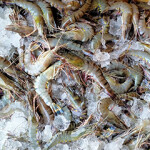New film aims to counter bias against farmed seafood

Dongo Films, a Brussels, Belgium-based collective of independent documentary filmmakers, are hoping to raise more than EUR 325,000 (USD 355,700) on public fundraising platform Kickstarter to make a film promoting sustainable aquaculture. Their goal is to reach the ambitious target by 22 March, 2020, which will allow filming to start this summer.
The film, AquaPioneers, is the brainchild of filmmakers Marjolijn Prins and Mathias Ruelle, working with production manager Heleen Bolle. They are being advised by Marjolijn’s brother, sustainable aquaculture expert Tom Prins, a dealflow manager with venture capital firm Aqua-Spark, based in the Netherlands.
Their aim is to tell the personal stories of five "aqua-pioneers," who were chosen following conversations with dozens of fish farmers, ocean entrepreneurs, and environmentalists from around the world.
“When done right, aquaculture has the potential to be a great force of ecological and social good. It can contribute in an extremely positive way to the health and future of our planet,” Marjolijn Prins said.
She explained that the chosen fish farmers were outstanding in their own fields, whether through pioneering a new species, a new production system, or a new location, and their stories would help to reshape the way aquaculture is done.
The filmmakers will talk to Beau Perry of Blue Evolution, who is leading s seaweed farming boom in Alaska, Baja California, and Mexico. They are also keen to explore Perry’s success in encouraging more people to eat seaweed by offering a range of seaweed super-food seasonings and pasta dishes that include sea greens.
“We are sustainably sourcing nutrition from the ocean, reducing dependence on freshwater for food production, and mitigating ocean acidification," Perry said. "As we deal with climate change and the movement towards plant-based diets, all of those trends play towards seaweed being a new sort of star ingredient."
On the other side of the world, Brad Adams has developed Ocean Grown Abalone, the world's first sustainable greenlip abalone (Haliotis laevigata) sea ranch, in the Ngari Capes Marine Park in Australia. He, too, will be spotlighted in the film. Adams, a third-generation fisherman, has spent the best part of 20 years researching and developing a sea ranching technique he calls the “abitat.”
Adams has created so-called "abitats" - artificial reefs on which he grows hatchery-bred juvenile abalone. The gastropods are left to grow for two to three years until they reach a marketable size, and need no artificial inputs or feed.
“Brad is a true aqua-pioneer, showing us how sustainable seafood production can actually enhance, restore and develop coastal ecosystems,” Ruelle said.
Damien Legros from Chicoa Fish Farm has pioneered the farming of Nile tilapia (Oreochromis niloticus) on Lake Cahora Bassa in Mozambique, along with his business partner Gerry McCollum. With the help of Aqua-Spark funding, they are creating a blueprint for vertically integrated fish-farming that other small-scale farmers can emulate, thereby helping to address food security and to overcome poverty and gender inequality.
In California, restaurateurs Bill Foss and Kenny Belov were fed up being disappointed by the seafood they were getting, and started their own sourcing and supply company, TwoXSea. The pair aimed to change the way in which seafood is farmed, caught, and handled from sea to plate, which led them to a collaboration with McFarland Springs Trout in Susanville, California.
At McFarland Springs, the rainbow trout (Oncorhynchus mykiss) are farmed in spring water to high standards of welfare. To ensure they were fully sustainable, Foss and Belov helped to develop a 100 percent algae-based feed. Their reward was a host of delighted customers, who love the taste and texture of the fish, and feel happier knowing that their seafood is environmentally sound, Ruelle said.
The final aquapioneers to be featured are Jan Arne Brekke and Ole-Kristian Hess-Erga, who farm Atlantic halibut (Hippoglossus hippoglossus) on the shore of the Sognefjord in Norway.
Their low-impact, single-hectare land-based farm, constructed mainly of recyclable materials, comprises a network of raceways fed by ice-cold water piped from deep in the Sognefjord. With their system, Brekke and Hess-Erga have successfully recreated the halibut’s natural aquatic environment on land, and produce excellent quality fish, according to Ruelle.
The Kickstarter campaign points out that while fish-farming can help to provide protein to feed a growing world population, the general perception of aquaculture remains negative. It cites unsustainable feeds, antibiotic use, and poor animal welfare as major issues that keep people from choosing farmed over wild-caught fish.
“I didn’t know anything about aquaculture before I started working on this film. And I could never make up my mind in the supermarket; how did I know that I was making a sustainable choice? My research has really opened my eyes to a world filled with amazing people who have a huge heart for our planet, and that is important to me as a filmmaker,” Marjolijn Prins said.
According to Tom Prins, the documentary is important in terms of bridging the gap between the public’s perception of aquaculture and where the industry actually is, in terms of sustainability, good practices, and innovation.
“The inspiring stories of the fish farmers and ocean entrepreneurs will form the basis for a new way of thinking about farmed seafood. A thinking that’s educated and driven by a passion for the oceans and sustainability,” he said.
Photo courtesy of welcomia/Shutterstock






Share